
Topkapi is a 1964 American Technicolor heist film produced by Filmways Pictures and distributed by United Artists. The film was produced and directed by the émigré American film director Jules Dassin. The film is based on Eric Ambler's novel The Light of Day (1962), adapted as a screenplay by Monja Danischewsky.

Rosemarie Magdalena Albach, known professionally as Romy Schneider, was a German and French actress. She is regarded as one of the greatest screen actresses of all time and became a cult figure due to her role as Empress Elisabeth of Austria in the Sissi trilogy in the mid-1950s. She later reprised the role in a more mature version in Luchino Visconti's Ludwig (1973). She began her career in the German Heimatfilm genre in the early 1950s when she was 15. Schneider moved to France, where she made successful and critically acclaimed films with some of the most notable film directors of that era. Coco Chanel called Romy "the ultimate incarnation of the ideal woman". Bertrand Tavernier remarked: "Sautet is talking about Mozart with regard to Romy. Me, I want to talk of Verdi, Mahler..."
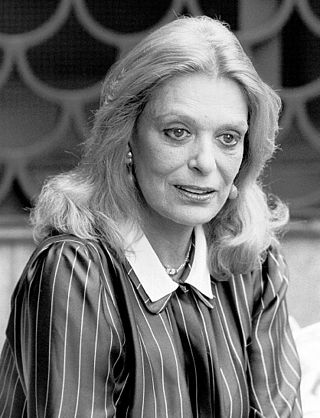
Maria Amalia "Melina" Mercouri was a Greek actress, singer, activist, and politician. She came from a political family that was prominent over multiple generations. She received an Academy Award nomination and won a French Cannes Film Festival Best Actress Award for her performance in the film Never on Sunday (1960) and an Italian David di Donatello for Topkapi. Mercouri was also nominated for one Tony Award, three Golden Globes and two BAFTA Awards in her acting career. In 1987 she was awarded a special prize in the first edition of the Europe Theatre Prize.
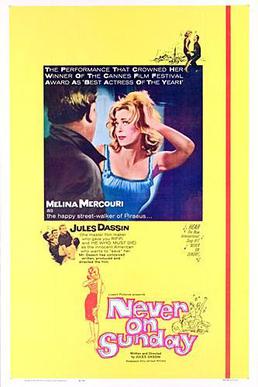
Never on Sunday is a 1960 Greek romantic comedy film starring, written by and directed by Jules Dassin.

Joseph Ira Dassin was an American–French singer-songwriter. In his career spanning sixteen years (1964–1980), he enjoyed numerous successes in France and the French-speaking world, as well as singing in languages other than French. He had a career in Finland, Greece, and Germany. In total, he sold nearly 25 million records worldwide. He was the son of film director Jules Dassin.

Stella is a 1955 Greek film is a retelling of Carmen featuring Melina Mercouri. The film was directed by the Greek Cypriot Michael Cacoyannis and written by Cacoyannis and Iakovos Kambanelis. The music was composed by Manos Hadjidakis and Vassilis Tsitsanis.

Valentina Elena Cortese Rossi di Coenzo, sometimes credited as Valentina Cortesa, was an Italian film and theatre actress. Her screen career spanned over 100 productions across over five decades, from 1941 until 1993. Cortese won the BAFTA Award for Best Actress in a Supporting Role, and was nominated for both an Academy Award and a Golden Globe, for her performance in the film Day for Night (1973). In 2013, she received the French Order of Arts and Letters.
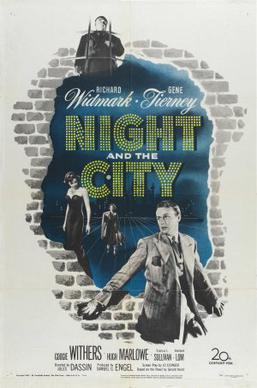
Night and the City is a 1950 British film noir directed by Jules Dassin and starring Richard Widmark, Gene Tierney and Googie Withers. It is based on the novel of the same name by Gerald Kersh. Shot on location in London and at Shepperton Studios, the plot revolves around an ambitious hustler who meets continual failures.

Brute Force is a 1947 American crime film noir directed by Jules Dassin, from a screenplay by Richard Brooks with cinematography by William H. Daniels. It stars Burt Lancaster, Hume Cronyn, Charles Bickford and Yvonne De Carlo.
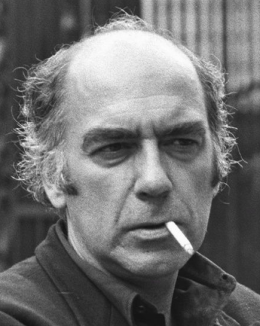
Jacques Deray was a French film director and screenwriter. Deray is prominently known for directing many crime and thriller films.

A Man Could Get Killed is a 1966 American adventure comedy film directed by Ronald Neame and Cliff Owen, shot on various locations in Portugal and starring James Garner, Melina Mercouri, Sandra Dee, Anthony Franciosa, and Robert Coote. Filmed scenes with Jenny Agutter, then 14, did not appear in the final cut.
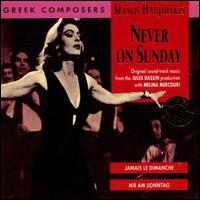
"Never on Sunday", also known by its original Greek title "Ta Pediá tou Pireá", is a song written by Manos Hatzidakis and first sung by Melina Mercouri in the film of the same name, directed by Jules Dassin and starring Mercouri. The song won the Academy Award for Best Original Song in 1960, a first for a foreign-language picture. The film score was first released on 1 October 1960 by United Artists Records.

Illya Darling is a musical with a book by Jules Dassin, music by Manos Hadjidakis, and lyrics by Joe Darion, based on Dassin's 1960 film Never on Sunday.

The Victors is a 1963 British-American war film written, produced and directed by Carl Foreman. He called it a "personal statement" about the futility of war—both victor and vanquished are losers.

Circle of Two is a 1981 Canadian drama film starring Richard Burton and Tatum O'Neal. It was the last film directed by acclaimed film noir director Jules Dassin. O'Neal - sixteen at the time of filming - appears topless in one scene.
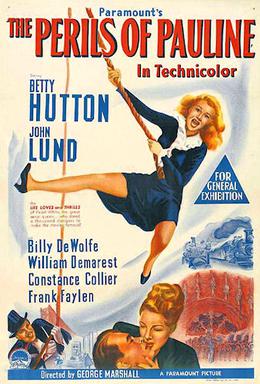
The Perils of Pauline is a 1947 American Technicolor musical comedy film directed by George Marshall and starring Betty Hutton, John Lund and William Demarest. It was produced and released by Paramount Pictures. The film is a fictionalized Hollywood account of silent film star Pearl White's rise to fame, starring Hutton as White.

A Dream of Passion is a 1978 Greek drama film directed by Jules Dassin. The story follows Melina Mercouri as Maya, an actress playing Medea, who seeks out Brenda Collins, portrayed by Ellen Burstyn, a woman who is in jail for murdering her own children to punish her husband for his infidelity.
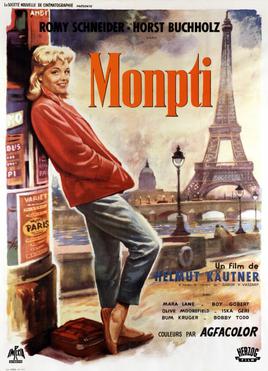
Love from Paris is a 1957 West German romantic comedy-drama film directed by Helmut Käutner and starring Romy Schneider and Horst Buchholz. It was based on the novel of the same title by Gábor von Vaszary. Vaszary also worked on the screenplay. The cinematographer was Heinz Pehlke, who used different techniques to convey the mood of the film, including using a concealed camera to capture the sights and sounds of Paris. The film premiered on 12 September 1957 in the Lichtburg cinema in Essen. The original copy of the film is archived at the Akademie der Künste in Berlin.
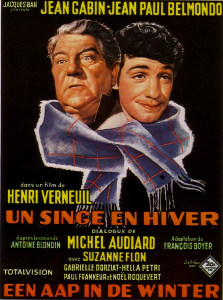
A Monkey in Winter is a 1962 French comedy-drama film directed by Henri Verneuil. It is based on the novel A Monkey in Winter by Antoine Blondin. Set in a Normandy seaside town, it recounts the meeting and parting of two men at odds with life, one an old hotel keeper who dreams of dashing deeds in pre-war China and the other a young advertising executive who imagines he is an incarnation of Hispanic masculinity.

Despoina "Despo" Diamantidou was a Greek actress. She appeared in more than seventy films from 1949 to 2003, frequently in support of Melina Mercouri and directed four times by Jules Dassin.




















